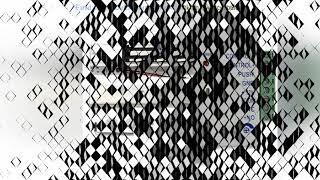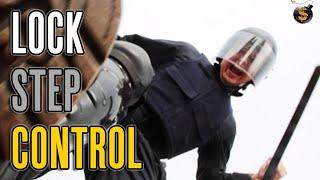LOCK STEP - A world of tighter top-down government control and more authoritarian leadership
Description
"LOCK STEP – A world of tighter top-down government control and more authoritarian leadership, with limited innovation and growing citizen pushback."
The following excerpts are highlights from the May 2010 “Scenarios for the Future of Technology & International Development” report produced by The Rockefeller Foundation & Global Business Network.
https://www.nommeraadio.ee/meedia/pdf/RRS/Rockefeller%20Foundation.pdf
SCENARIO #1: LOCK STEP
“In 2012, the pandemic that the world had been anticipating for years finally hit. Unlike 2009’s H1N1, this new influenza strain — originating from wild geese — was extremely virulent and deadly. Even the most pandemic-prepared nations were quickly overwhelmed when the virus streaked around the world, infecting nearly 20 percent of the global population and killing 8 million in just seven months, the majority of them healthy young adults. The pandemic also had a deadly effect on economies: international mobility of both people and goods screeched to a halt, debilitating industries like tourism and breaking global supply chains. Even locally, normally bustling shops and office buildings sat empty for months, devoid of both employees and customers.” [p 18]
“The pandemic blanketed the planet — though disproportionate numbers died in Africa, Southeast Asia, and Central America, where the virus spread like wildfire in the absence of official containment protocols. But even in developed countries, containment was a challenge. The United States’s initial policy of “strongly discouraging” citizens from flying
proved deadly in its leniency, accelerating the spread of the virus not just within the U.S. but across borders. However, a few countries did fare better — China in particular. The Chinese government’s quick imposition and enforcement of mandatory quarantine for all citizens, as well as its instant and near-hermetic sealing off of all borders, saved millions of lives, stopping the spread of the virus far earlier than in other countries and enabling a swifter post pandemic
recovery. [p 18]
“China’s government was not the only one that took extreme measures to protect its citizens from risk and exposure. During the pandemic, national leaders around the world flexed their authority and imposed airtight rules and restrictions, from the mandatory wearing of face masks to body-temperature checks at the entries to communal spaces like train stations and supermarkets. Even after the pandemic faded, this more authoritarian control and oversight of citizens and their activities stuck and even intensified. In order to protect themselves from the spread of increasingly global problems — from pandemics and transnational terrorism to environmental crises and rising poverty — leaders around the world took a firmer grip on power.” [p 19]
“At first, the notion of a more controlled world gained wide acceptance and approval. Citizens willingly gave up some of their sovereignty — and their privacy — to more paternalistic states in exchange for greater safety and stability. Citizens were more tolerant, and even eager, for top-down direction and oversight, and national leaders had more latitude to impose order in the ways they saw fit. In developed countries, this heightened oversight took many forms: biometric IDs for all citizens, for example, and tighter regulation of key industries whose stability was deemed vital to national interests. In many developed countries, enforced cooperation with a suite of new regulations and agreements slowly but steadily restored both order and, importantly, economic growth.” [p 19]
“By 2025, people seemed to be growing weary of so much top-down control and letting leaders and authorities make choices for them.” [p 21]
“Sporadic pushback became increasingly organized and coordinated, as disaffected youth and people who had seen their status and opportunities slip away — largely in developing countries — incited civil unrest.” [p 21]
“Technological innovation in “Lock Step” is largely driven by government & is focused on issues of national security & health & safety. Most technological improvements are created by & for developed countries, shaped by governments’ dual desire to control and to monitor their citizens.”[p 23]
“Technology trends and applications we might see: Scanners using advanced functional magnetic resonance imaging (fMRI)technology become the norm at airports and other public areas to detect abnormal behavior that may indicate “antisocial intent.”” [p 23]






![[1040] Fingerprint/RFID Lock Defeated With a Paperclip (Mengqi-Control)](https://no-mar.com/uploads/thumbs/a02796a29-1.jpg)














Comments